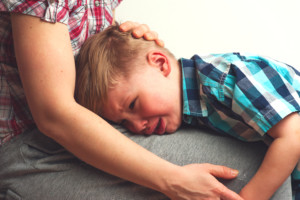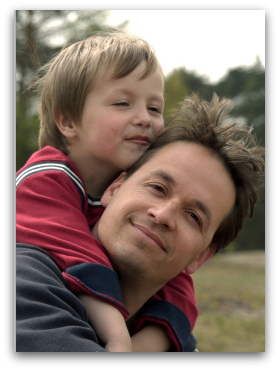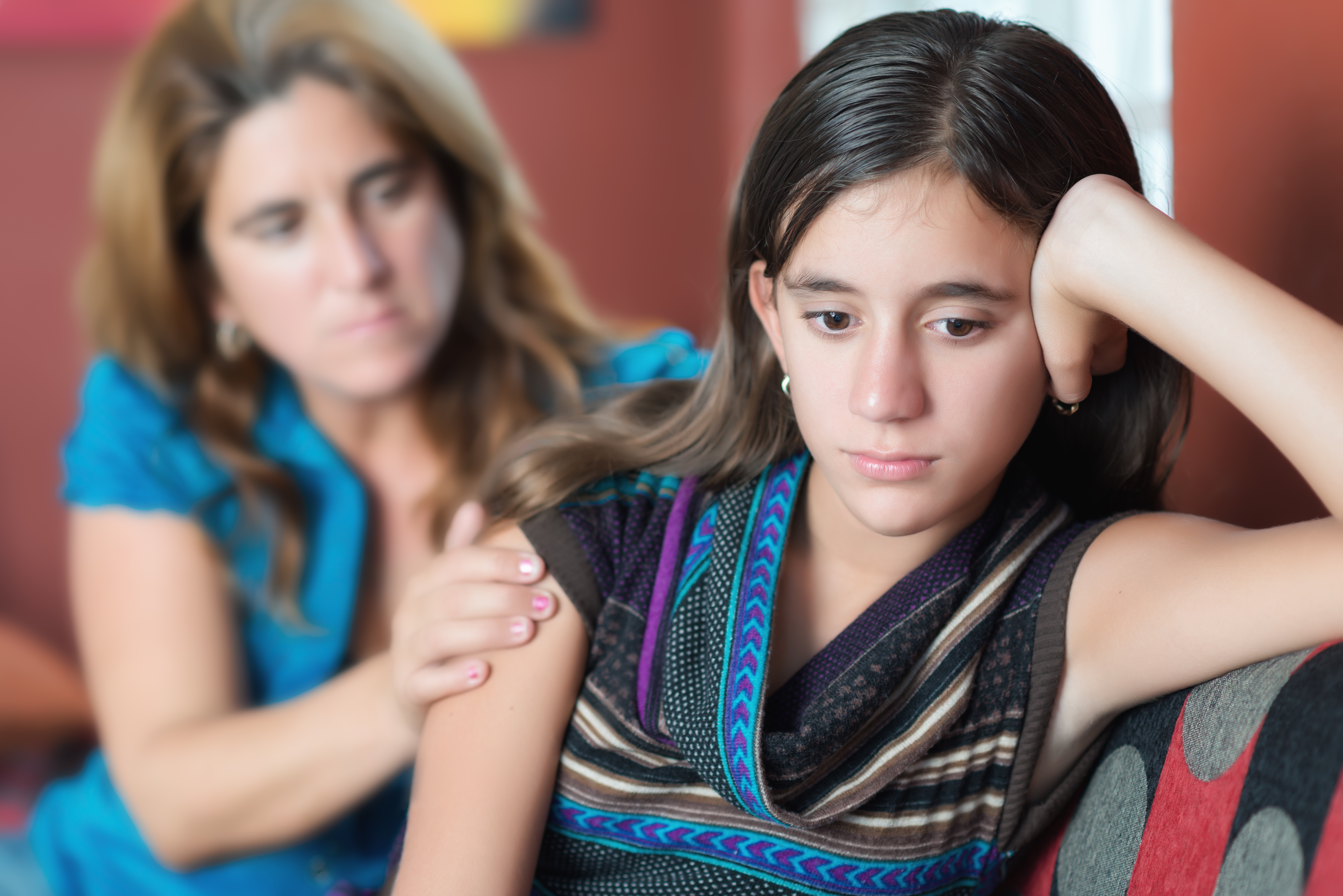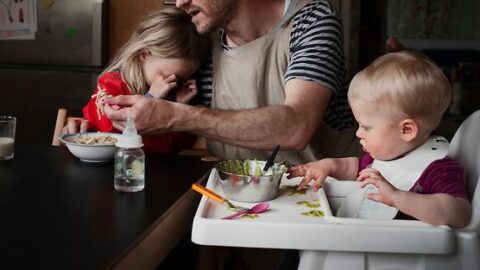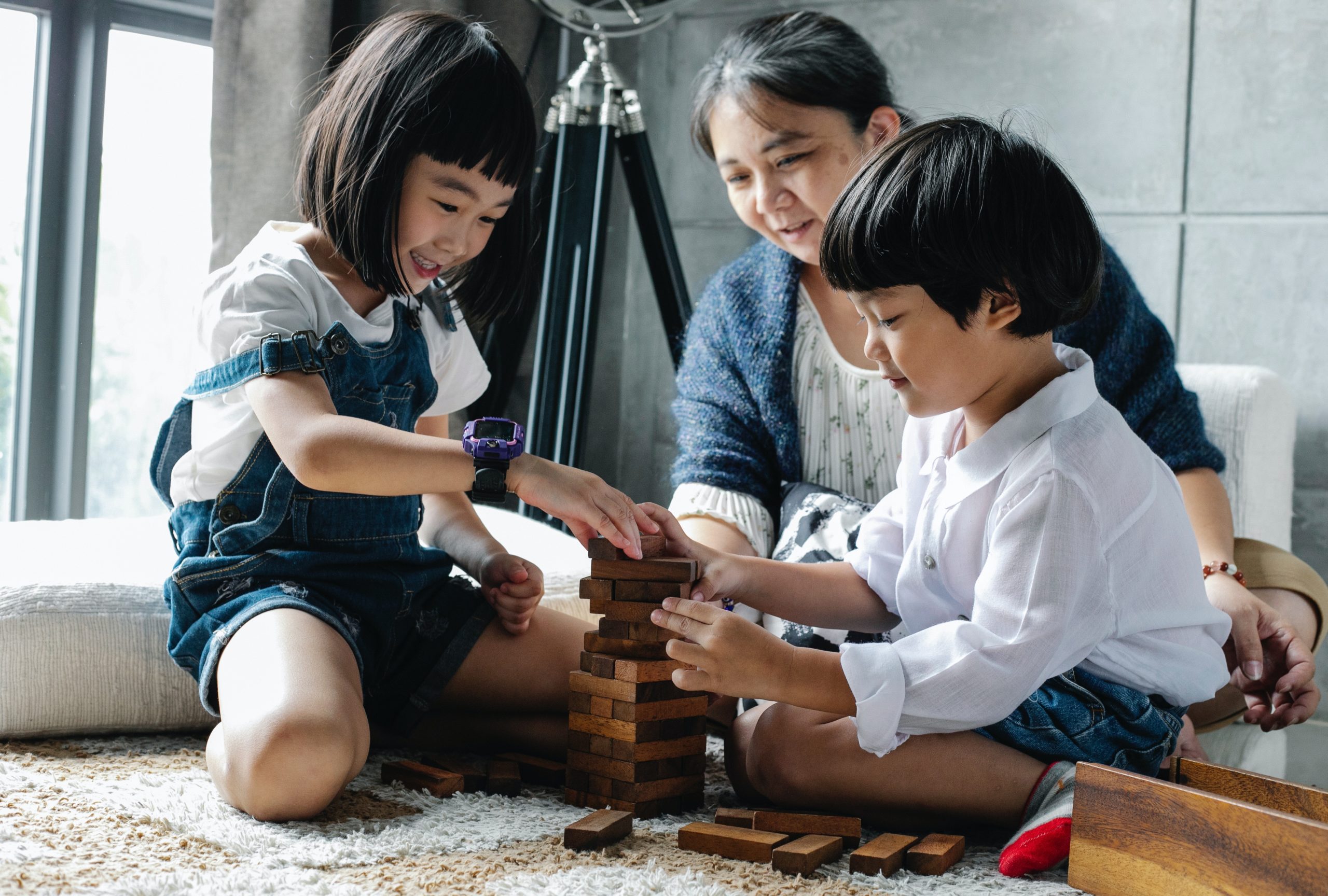Navigating body autonomy and necessary health interventions
As parents committed to more peaceful and gentle approaches, we do all we can to avoid being forceful with our children. This is such a beautiful, and particularly important, value to hold. We want our children to have a strong sense of body autonomy. We want them to know they have the right to choices and boundaries, especially related to their body. We want them to confidently express “no I don’t want a hug” or “I’m not cold I don’t want to wear a jumper”.
Yet there will likely be times when you feel you have no choice but to force your child to do what you believe needs to be done, or stop that which needs to stop. This becomes especially difficult to navigate around issues of health and safety like necessary health interventions when the risks are much higher than the child getting cold!
We all know what the authoritarian approach looks like
The “just do it and don’t complain” authoritarian approach is what most of us experienced and witnessed as children and still witness around us today. It’s one version or another of insisting that it has to happen whether they like it or not, with little if any genuine care and empathy expressed. Yet parents don’t want to neglect caring for their child’s health or injuries. We know that untreated ailments can lead to much bigger problems, so what’s a parent to do in such situations?
I’ll share some tips below on what might help before, during and after the experience the child is dreading. But first, let’s talk about the emotional connection between you and your child at such times.
But it just needs to happen!
Because health interventions go in the category of necessity, it’s tempting to overly focus on the physical needs and minimise the emotional needs. The concerns for our child’s health can evoke a lot of anxiety in us parents, and this anxiety can put us into the stress response, which can really break down the connection. From this anxious fixated “this needs to happen now!” perspective, parents can become overly insistent and forceful.
Yet whether it’s giving them medicine or a medical emergency, these are times when our child most needs to truly feel and access the sense of safety that only connection can bring. Even reassuring words can fail to reach our child in a way that reduces their anxiety when the child can’t feel that warmth of heart. It helps to remember what a huge role that the stress or happy hormones play in maximizing or minimizing pain, in optimizing or suppressing the immune system.
You might also like to read My Body Belongs to Me
Centre, connect, communicate
We can focus on the communication with our child, forgetting that the connection is what determines whether they can even process our words. To maintain connection, we need to focus on centering ourselves and better managing our stress. Again and again, I witness the power struggles shift and the child better trusting and following their parent’s care and guidance when the warm emotional connection is maintained during such challenges.
When we cross the bridge and tune in to our child’s experience from a calm, centered place, we can bring our child back to their heart, which really is the seat of power and healing for the mind and body.
By keeping the focus on showing your child that you are relating to and caring for their feelings, you convey at a very emotional and energetic level that even though they’re nervous about the experience, that overall they truly are safe and in good hands. This warm connection is especially difficult for parents to convey when worried about their child. But it’s what helps our child relax and increases their capacity to deal with these tough and sometimes terrifying experiences. This is also why parents need to access the emotional support they need when worried about their child.
Before the dreaded activity…
It’s really good to talk through with your child what’s going to happen, what to expect and as much as possible, give them some choices around what, when and how the health intervention happens. This reduces their feelings of powerlessness and helps them trust that you’re caring for and considering their needs. This increases their sense of safety and helps to avoid overwhelm.
For instance, is there a precious toy or blanket they can hold or bring with them. Make your plan for the morning/ afternoon which includes the dreaded activity but also other enjoyable activities and involve them in that plan.
Plan to carve out some good quality connection with your child before the activity
Quality one-on-one time with your child fills up their love tank, calms their nervous system and generally strengthens the bond between you. This can result in your child feeling loved and trusting that you’ll continue to stay physically and emotionally present.
Reach them in the heart
Instead of trying to change their thinking, focus on giving your child the encouragement to express their feelings. Of course, we wish they weren’t anxious or otherwise resistant, but when they are feeling anxious, they need to know they’re not alone with those feelings. Your emotional care can lead to a resolution or a reduction of stress and anxious feelings. It’s primarily your warm connection that equips them to cope with the experience they’re dreading.
Avoid comments like “be brave” and “don’t cry”
Messages such as these inhibit the child’s expression. The child can’t easily choose to be brave and not feel anxious, but the expectation to be brave and the fear of being judged as not brave can result in them feeling inhibited from expressing these emotions. Inhibiting emotions can result in displaced expressions like defiance or aggression. If the child’s stress response is more to freeze or please, it can lead to emotional shutdown and their anxiety manifesting in somatic symptoms like a tummy or headache.
Practice speaking or hand gesturing a request to pause
Reassure your child that you’ll explain to the doctor or dentist to stop and let the child talk or take a little break when they gesture needing to pause. This gives them a little bit of control and can prevent negative associations or phobias that tend to happen when a child feels forced, powerless and hence overwhelmed.
During the ordeal
Let them hold and squeeze your hand. This both gives them an outlet for the stress and is also a way of communicating non-verbally to the parent to indicate their current level of pain or panic. Squeezing gives a child a place to offload their feelings; “you can push your nervous feelings into my hand”. Depending on your child’s age and the circumstances, it may help if you hold them (perhaps sitting on your knee) as the doctor or another adult in the house carries out the health intervention that needs to happen.
Breathing out stress, fear and pain
You can encourage your child to breathe with you explaining that it will push the pain or nervous feelings out of their body. Countless studies have shown that slowing down our breathing can take us out of the stress response. As you reassure your child; “that’s it slowly breathing out the stress”, it gives you the opportunity to do the same! Remind your child to speak or hand gesture if they need the doctor or dentist to stop for a few moments.
Speak to their heart, not their head
Remembering to speak to your child’s feelings helps them feel less alone and hence less scared and overwhelmed. It’s a natural need of humans to be confident that our nearest and dearest sees and gets what we are going through. Slow affectionate touch like patting their head can convey the same. You might calmly ask; “you seem nervous my girl, do you feel scared or worried?”
It’s so hard to know what will raise or reduce their anxiety, but when we can settle and calm ourselves, access a soft feeling in our heart and aim to speak to our child’s heart, that’s when we tend to find the words that reach them, that’s when our actions settle our child. When they feel that connection, they’re more likely to be able to express what they need; “What do you need honey, what might help you cope?”
In the context of a dentist, doctor or naturopath’s office, this both helps the child feel more secure and also reminds the professional that the child is having an emotional experience that is sensitive and vulnerable – hopefully eliciting more sensitivity and compassion from the practitioner.
After the dreaded experience
Whether the experience was very distressing or just bad enough for them to be resistant again the next time, you can support your child’s natural healing instincts to release and resolve any trapped shock or fear after the event by holding space for them to talk it through, to vent or cry and to re-enact what happened.
Some of these remedies can happen sitting in the car outside the building or sitting on the couch at home straight after the ordeal. Or they can happen later at a time when you have more capacity and the environment is more conducive. Also, a reminder that being in nature supports the optimal physiological healing mechanisms in us humans.
Any of these suggestions can help, but the more of them and the more often the better. Helping your child resolve and work through the fears and resistances they’ve built up after the event will result in similar future interventions being much less anxiety provoking for your child. Hence, much less stressful and anxiety-provoking for you!
Releasing and resolving tensions through crying
After giving her the medicine or taking her to the dentist, doctor or psychologist, at a calm moment, become really present with lots of empathy and big cuddles; “Oh dear my sweetheart, you didn’t like that did you? Oh no you didn’t like that at all. That was really hard, that’s it have a big cry” – kind of thing. Don’t rush him or her to move on from the upset, working through it can be very healing.
Releasing and resolving tensions through complaining and venting
If they are complaining passionately about the experience, know that this is incredibly positive. They’re attempting to get those feelings out of their system. Children can cope with a lot of emotional pain if it doesn’t get stuck in their system. Your empathy is the balm that can bring your child relief and help them come back to peace.
Releasing and resolving tensions through power reversal games
Power reversal games are great for helping children resolve frustration and can help to break down fears and distrust in a relationship. When a parent playfully takes the less powerful role by acting childish, goofy, silly, unaware, unintelligent, uncoordinated or allowing their child to win or overpower them in games, it can help to dissolve feelings of powerlessness.
Power reversal games can resolve feelings of powerlessness: Invite him to pretend to be the one giving YOU medicine, the more you can exaggerate being scared or it hurting in as goofy a way as possible, the more therapeutic the laughter can be. Any power reversal play you do with him will help her to work this inhibition/ resistance he’s developed out of his system.
Read more about the healing power of Power Reversal Games in my article The Power of Play.
Avoid using food or other treats to comfort them
It’s tempting to immediately distract them with a treat like something sweet to eat or put on the iPad (if you use screens). However, the risk here is that your child is learning to dissociate and disconnect, and develop what author and psychologist Dr Aletha Solter coined to be control patterns. Distracting the child with sweet food, screens or something else that tends to instantly change a child’s state can create the illusion for parents and child alike that all that distress is resolved. Yet the mere mention of the dreaded activity will likely be a reminder that the anxiety is still very much in their body, mind and nervous system.
The best remedy is closeness either in the form of affection and active listening or play with lots of laughter. The connection-based responses give the child an outlet and will help them generally work through their big feelings about the treatment or medicine.
First published in The Natural Parenting Magazine
Genevieve Simperingham is a Psychosynthesis Counsellor, a Parenting Instructor and coach, public speaker, human rights advocate, writer and the founder of The Peaceful Parent Institute. Check out her articles, Peaceful Parenting eCourses, forums and one-year Peaceful Parenting Instructor Training through this website or join over 90,000 followers on her Facebook page The Way of the Peaceful Parent.


